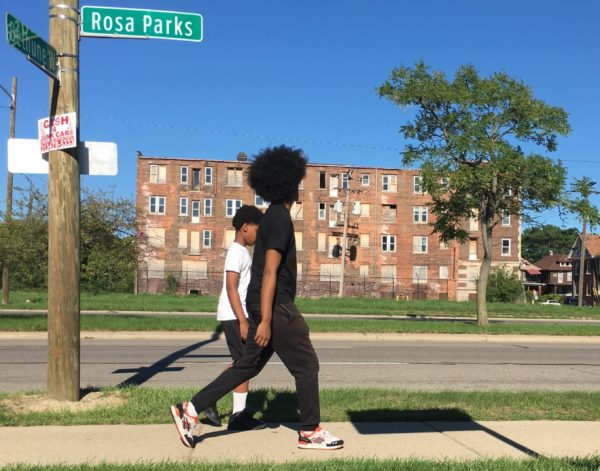By Brentin Mock
Buying a home is the one of the primary ways that the average American accumulates wealth to pass down to their children. But it’s something White families have been able to capitalize on far more than Black families. You can’t understand the racial wealth gap in America without grappling with the historic federal housing policies that led to profound disparities in homeownership rates. In Episode 4 of The Pay Check, we explore what some of those impacts look like today, and delve into some of the history that led to them.

Here are four numbers that illustrate the persistence of America’s racial homeownership disparity.
2019
The year Black homeownership hit its lowest rate since the 1970s.
In the 1960s and ’70s, the federal government enacted policies to outlaw incendiary practices like redlining, the government-sanctioned program that routinely rated entire Black neighborhoods as the riskiest investments. That practice meant that very few people in Black neighborhoods were able to purchase homes, or even get loans to improve homes that were already purchased.
But despite federal reforms, in the last several decades, disparities between Black and white homeownership haven’t gotten better.
In fact, in the second quarter of 2019, Black homeownership hit the lowest rate since the 1970s, at 40.6 percent. Meanwhile, White homeownership climbed in the beginning of 2019 to 73.1 percent. The following year ended with slightly higher rates but a similar disparity: 74.5 percent for white Americans in the final quarter of 2020, and 44.1 percent among Black Americans.
$48,000
The average amount that homes in Black neighborhoods are undervalued compared to white neighborhoods, according to a Brookings analysis.
Home sale values, too, have grown only further apart. One recent study from sociologists Junia Howell and Elizabeth Korver-Glenn found that between 1980 and 2015, the gap in appraised value doubled between homes in majority-White neighborhoods and those that are predominantly Black or Latino. Another study from the Brookings Institution found that homes in Black neighborhoods are underpriced by 23 percent compared to White neighborhoods, or an average of $48,000 per home. That’s even after controlling for neighborhood, income and education factors. And it has cost Black families a tremendous amount of wealth.
$156 billion
The cumulative amount of equity Black families lost in a single year due to undervaluation of their homes.
That same Brookings Institution study quantified the amount of money lost from this racial appraisal disparity. In just 2017, it found that Black families lost a total of $156 billion due this undervaluation. The author of the study, Andre Perry, quantified what that money could have paid for:
It would have financed more than 4.4 million black owned businesses based on the average amount Blacks use to start a business. They would have paid for more than 8 million college degrees based on the average amount of a public education. It would have covered the pipes in Flint, Michigan, 3000 times over. And it would have covered all of Hurricane Katrina damage. And it’s double the annual economic burden of the opioid crisis. Now this is money that is really robbing people of the opportunity to lift themselves up.
9/10
The ratio of U.S. counties where unfair calculations have meant higher property taxes for many Black Americans.
Compounding the burden on Black Americans is another disparity that’s just coming to light. It lives in our taxes. A Bloomberg investigation uncovers how property tax assessments across the U.S. have systematically overtaxed the lowest-value homes, disproportionately burdening Black Americans.
In an examination of 2,600 U.S. counties, more than 9 out of every 10 reflected the same pattern of unfairness, “a textbook example of institutional racism,” says Christopher Berry, a professor at the University of Chicago who conducted the study. High taxes escalate the cost of homeownership and cause many people to lose their homes.
Nowhere in the country has this been a bigger problem than in the predominantly Black city of Detroit, where a quarter of all homes have been foreclosed on for failure to pay taxes, according to Berry.
For more articles like this, please visit us at bloomberg.com.




